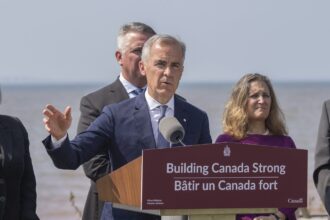In the heart of Quebec’s financial district, global leaders, investment titans, and climate innovators converged this week for the 2024 Sustainable Finance Summit Montreal, establishing the city as a pivotal hub in North America’s transition to a low-carbon economy. As financial markets increasingly recognize climate risk as investment risk, this high-profile gathering underscored Canada’s emerging role in redirecting capital flows toward sustainability solutions.
“We’re witnessing a fundamental reshaping of finance,” remarked Sophie Brochu, former Hydro-Québec CEO, during her keynote address. “The question is no longer whether we transition to a low-carbon economy, but how quickly we can mobilize the necessary capital to do so effectively.”
The three-day summit, hosted at Montreal’s Palais des congrès, attracted over 1,500 delegates representing major financial institutions, pension funds, and international policy organizations. Participants explored innovative financing mechanisms designed to accelerate decarbonization across economic sectors while ensuring social equity remains central to climate solutions.
Quebec’s strategic position as both a clean energy powerhouse and financial center featured prominently throughout discussions. The province’s abundant hydroelectric resources, combined with Montreal’s growing sustainable finance ecosystem, position the region to potentially lead North America’s green economic transition, according to several panelists.
“Montreal has all the elements needed to become the sustainable finance capital of North America,” said Mark Carney, UN Special Envoy on Climate Action and Finance, during a panel on regional financial hubs. “The concentration of institutional investors, pension funds, universities, and clean energy expertise creates a unique environment for driving climate finance innovation.”
A key focus of the summit was the pressing need to scale up climate finance mechanisms. Industry leaders presented new frameworks for green bonds, sustainability-linked loans, and transition finance instruments aimed at helping carbon-intensive industries decarbonize. Presentations highlighted successful case studies from Quebec’s manufacturing, transportation, and construction sectors, demonstrating how strategic financial tools can dramatically accelerate emissions reductions.
Indigenous financial leaders offered crucial perspectives on ensuring climate finance respects community sovereignty and traditional knowledge. “Any viable climate finance framework must incorporate Indigenous rights and knowledge systems from the outset, not as an afterthought,” emphasized Melissa Mollen Dupuis from the Innu community of Ekuanitshit during a session on inclusive climate finance.
The summit also addressed growing concerns about greenwashing and the credibility challenges facing environmental finance claims. Regulators and market participants discussed evolving taxonomies, disclosure requirements, and verification mechanisms to ensure integrity across sustainable financial products.
“Transparency is non-negotiable if we want sustainable finance to maintain its credibility and effectiveness,” noted Julie Morin, Chief Investment Officer at Caisse de dépôt et placement du Québec. “Investors need consistent, comparable data to differentiate between meaningful climate action and mere window dressing.”
Beyond policy and finance discussions, the summit featured a technology showcase highlighting Canadian climate tech innovations seeking investment to scale their solutions. From carbon capture technologies to AI-powered grid optimization, these ventures represented the practical applications of the financial frameworks being discussed in conference rooms.
As CO24 Business has previously reported, sustainable finance has grown exponentially in Canada over the past five years, with green bond issuances reaching record levels in 2023. The Montreal summit builds on this momentum while acknowledging significant challenges ahead.
The event concluded with participating financial institutions collectively committing to mobilize over $300 billion toward climate solutions by 2030, with specific allocation targets for adaptation, mitigation, and just transition initiatives across Canada and internationally.
As delegates departed, a pivotal question lingered in the crisp Montreal spring air: Will the sophisticated financial mechanisms and commitments discussed this week translate into the rapid, real-world carbon reductions needed to meet increasingly urgent climate timelines?










